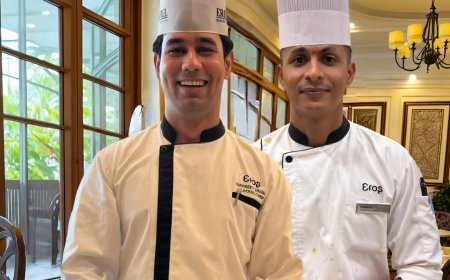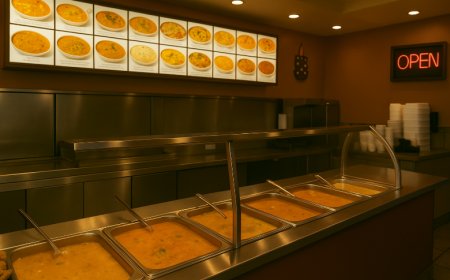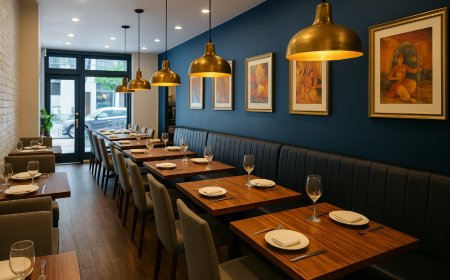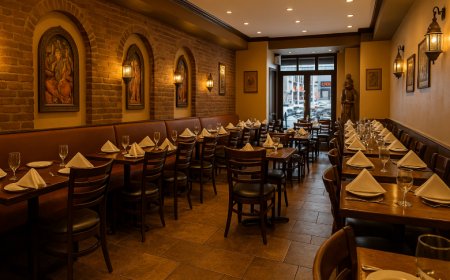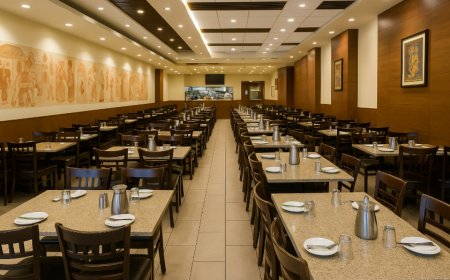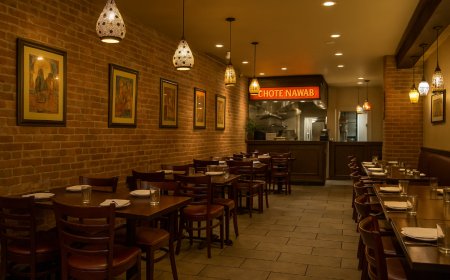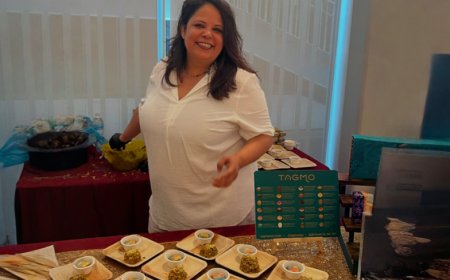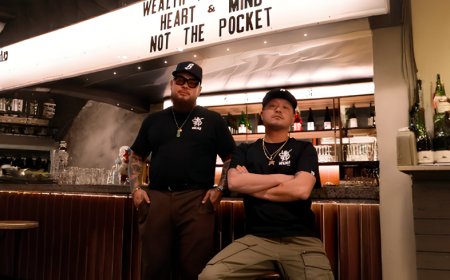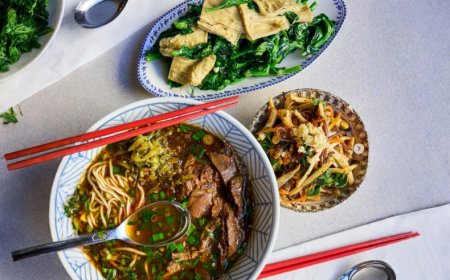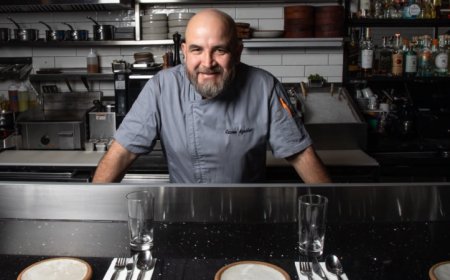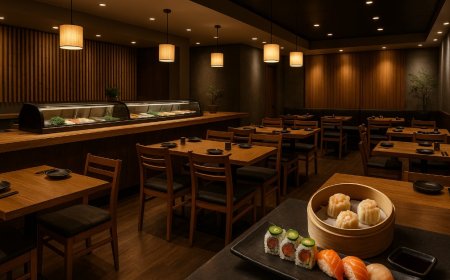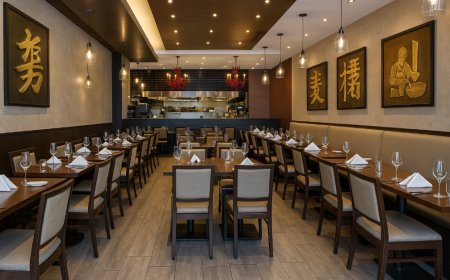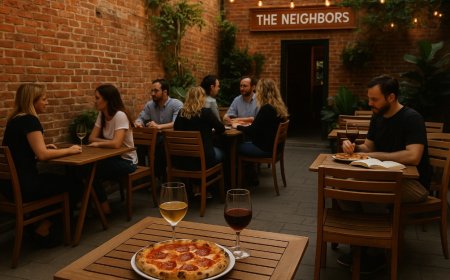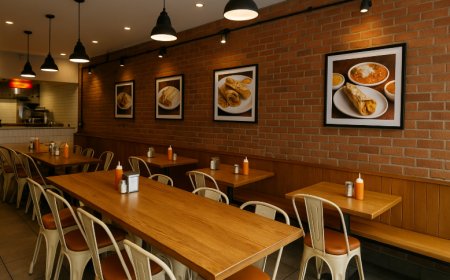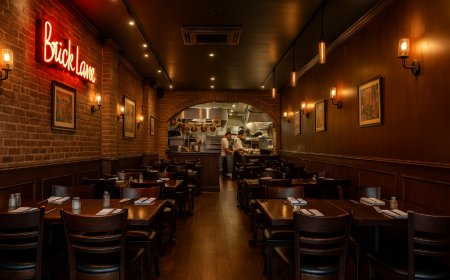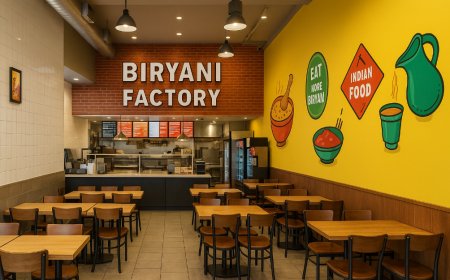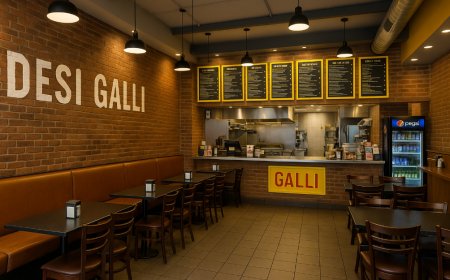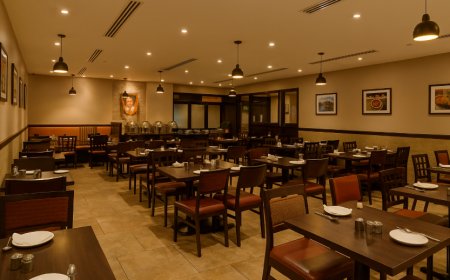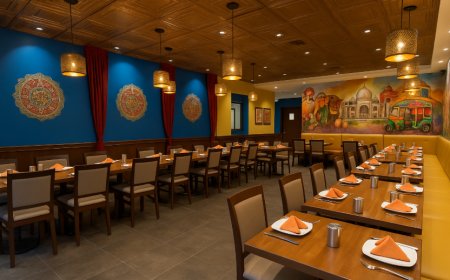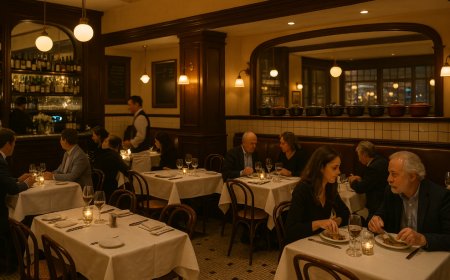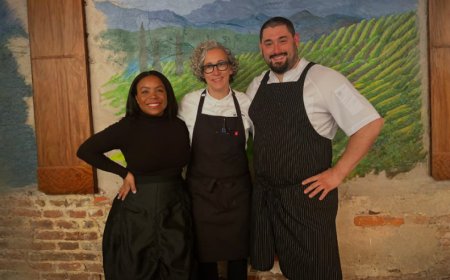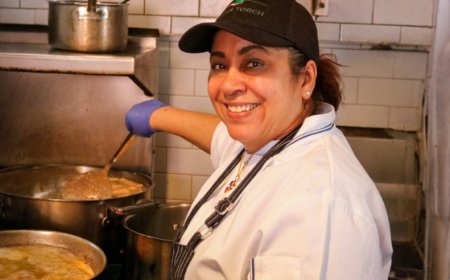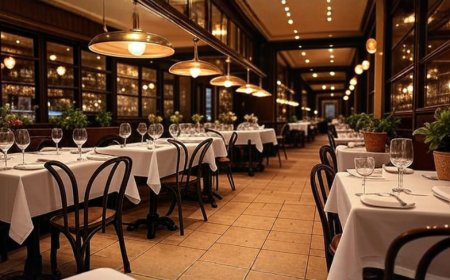Simon Lam’s Culinary Identity: Where Cantonese Tradition Meets Global Soul
Discover how Chef Simon Lam, the force behind Tiger Fork in Washington, D.C., blends Cantonese heritage, multicultural influences, and emotional resonance into one unforgettable dining experience.
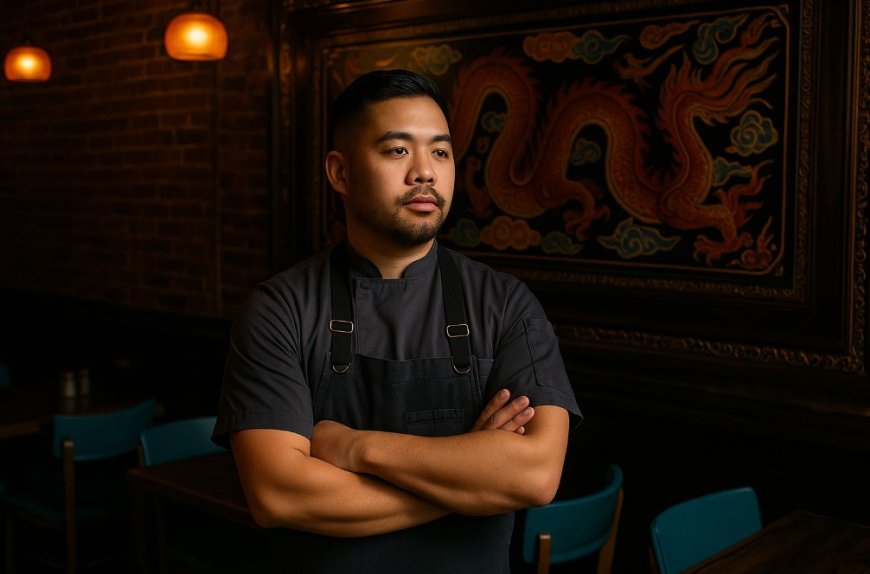
Bridging Cultures Through Food: The Culinary Story of Simon Lam
In the heart of Washington, D.C.'s Shaw neighborhood, a restaurant tucked inside an alley buzzes with vibrant energy and soul-warming aromas. This is Tiger Fork, a place that pulses with the kind of atmosphere that makes you feel like you’ve stepped into a backstreet diner in Hong Kong—albeit one infused with the heart of Southern California and the vibrancy of modern multicultural cuisine.
At the helm of this energetic eatery is Chef Simon Lam, a culinary storyteller who doesn’t just serve food—he serves experiences laced with nostalgia, global sensibilities, and cultural authenticity. With roots that trace back to Vietnam and China, and an upbringing shaped by the diverse foodscapes of Southern California and Las Vegas, Lam’s journey is anything but conventional.
The Story Behind the Concept: From Family Kitchens to Tiger Fork
For Simon Lam, food has always been personal. Raised in a family that ran a Chinese-American restaurant called China Bowl Express, Lam was immersed in the culinary world from a young age. He watched his father navigate the rhythms of restaurant life—chopping vegetables, tending to sizzling woks, greeting guests—and internalized not just the skills, but the emotional resonance of feeding people.
This early exposure eventually led Lam to formal culinary training, but his most meaningful lessons came from the intersection of his family’s Chinese and Vietnamese heritage, combined with the multicultural melting pots of the cities he grew up in.
When he joined Tiger Fork in 2023, he saw an opportunity to pay tribute to Cantonese cuisine, while also expanding its definition. Here, he blends old-school traditions with modern curiosity, offering dishes that may feel familiar to some but often surprise with global twists. The goal? To create food that connects, heals, and inspires—food that “hits you in the feels,” as Lam often says.
A Chef’s Culinary Philosophy: Cooking for Connection
Chef Lam’s approach to cooking is rooted in emotional storytelling. While his technical training and cultural heritage form the backbone of his work, it’s his intention behind each dish that truly elevates his cuisine. For Lam, cooking isn’t about impressing—it’s about resonating. He wants guests to taste something and be reminded of a grandmother’s kitchen, a late-night food stall, or a memory buried in time.
His menu at Tiger Fork is deeply Cantonese at its core—with classics like char siu, steamed dumplings, and congee anchoring the offerings—but Lam isn't afraid to push boundaries. Influences from Vietnamese, American, and even Indian cuisines occasionally make their way onto the plate, not as gimmicks, but as authentic expressions of his identity and personal journey.
This openness to fusion isn’t about watering down traditions. Instead, it's about embracing the fluidity of cultural identity, especially for second-generation immigrants who often feel rooted in many places at once.
What Makes the Menu Special
Tiger Fork’s menu is an ever-evolving love letter to Cantonese cooking, layered with nuance and playfulness. Think crispy pork belly infused with Sichuan peppercorn, charred gai lan with XO sauce, or a spicy wonton that balances heat with earthy sweetness.
There’s also a deliberate effort to avoid clichés. Lam leans away from overly Westernized versions of Chinese food and instead focuses on crafting dishes that speak to real Cantonese flavors, made accessible without being diluted.
His signature dishes often draw direct inspiration from childhood memories. A steamed fish dish may reflect the way his mother cooked whole tilapia on Sundays. A smoky bowl of noodles might echo the late-night bowls he slurped down with friends after long shifts in the kitchen. Every bite has a backstory.
Collaboration and Cultural Dialogue: Indian and Cantonese Flavors Unite
In July, Lam is taking his culinary curiosity one step further by partnering with Chintan Pandya and Roni Mazumdar—the duo behind New York’s Unapologetic Foods Group (including Dhamaka, Semma, and Masalawala & Sons)—for a collaborative dining experience in Los Angeles. The event aims to highlight the intersections between Indian and Cantonese cuisines, which, despite geographic distance, share similarities in spice layering, regionality, and a fierce love for bold flavors.
For Lam, this isn’t just a cool crossover—it’s an exploration of shared immigrant narratives, of how food travels, adapts, and evolves in new lands. It’s also a testament to the power of being unapologetically proud of one’s roots, a value he shares with Pandya and Mazumdar.
These kinds of collaborations mark a shift in how ethnic cuisines are represented in the U.S.—no longer confined to takeout boxes or “exotic” labels, but presented as rich, complex, and worthy of the culinary spotlight.
The Power of Being Unapologetic
When asked about the concept of “unapologetic cooking,” Lam doesn’t see it as aggressive or confrontational. Instead, he defines it as being true to yourself—not compromising spice levels, not pandering to mainstream expectations, and not altering your heritage to fit someone else's mold.
This philosophy resonates through every part of Tiger Fork, from the menu to the energy in the dining room. The restaurant isn't designed to be universally liked; it's designed to be authentic, memorable, and culturally resonant.
This approach has earned Lam and Tiger Fork a loyal following, not just among food lovers, but among those who recognize and celebrate the emotional power of food rooted in identity.
Looking Ahead: Expanding the Narrative
As Tiger Fork continues to evolve, so does Simon Lam’s vision. He isn’t chasing trends or Michelin stars—his focus remains on deepening the narrative behind his food, connecting more meaningfully with guests, and continuing to explore the intersections of culture through collaborative projects.
He’s also passionate about mentoring younger chefs from similar backgrounds—encouraging them to embrace their heritage in the kitchen, rather than feeling pressured to Westernize or conform. For Lam, the next generation of chefs has the potential to redefine how ethnic cuisines are perceived and respected in mainstream America.
Final Thoughts: More Than a Meal—A Cultural Memory
Chef Simon Lam is part of a new generation of culinary leaders who aren’t just changing what’s on the plate—they’re changing how we talk about food, culture, and belonging. Through Tiger Fork, he invites diners not just to eat, but to feel—to connect with his story and perhaps find echoes of their own in the flavors he shares.
What's Your Reaction?
 Like
0
Like
0
 Dislike
0
Dislike
0
 Love
0
Love
0
 Funny
0
Funny
0
 Angry
0
Angry
0
 Sad
0
Sad
0
 Wow
0
Wow
0
